Deicing Chemicals
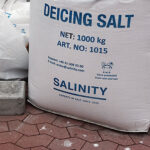
This year has been one of the worst grade B late-night horror movies ever made! It is so bad that I would rather fast-forward and just watch the commercials. Thankfully, it’s almost over, but before we get to the credits I have a spoiler alert for what could be coming - a slip, slide or fall on the patio, steps, or driveway. Trust me when I say that the horror experience will only continue at the hospital. Here is some info so you can just fast-forward through those last few painful moments and hopefully save yourself from enduring a sequel in 2022.
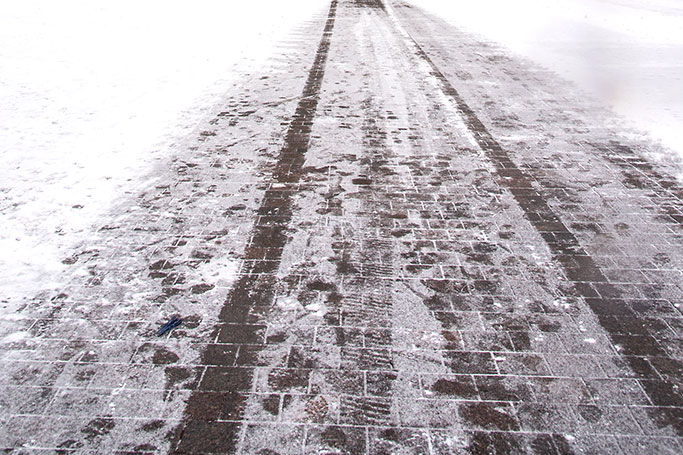
USCapitol from Washington, D.C., United States of America, Public domain, via Wikimedia Commons
What deicing chemicals do most concrete manufacturers suggest using?
There is a lot of conflicting information about this out there, so let me distill it for you. All of this stuff can cause corrosion so choose your product based on the temperature range you are expecting and use whatever you use sparingly. Least damaging and preferred in most situations is good old rock salt, sodium chloride (NaCl) which is most effective to about 15°F. Colder than that, use calcium chloride (CaCl2) which works down to -2°. It is slightly more corrosive. Products containing magnesium should be avoided.
Are there any recommendations for using deicing products?
Follow the directions listed on the bag! In addition, practice these simple recommendations:
- Clear the snow first before putting down product. There are no shortcuts here, sorry.
- Use sparingly to prevent damage to your concrete surfaces and planted beds.
- Sweep and remove any excess deicing product after the ice and snow melts.
- After the winter season, thoroughly wash the paver surface to remove any chemicals remaining.
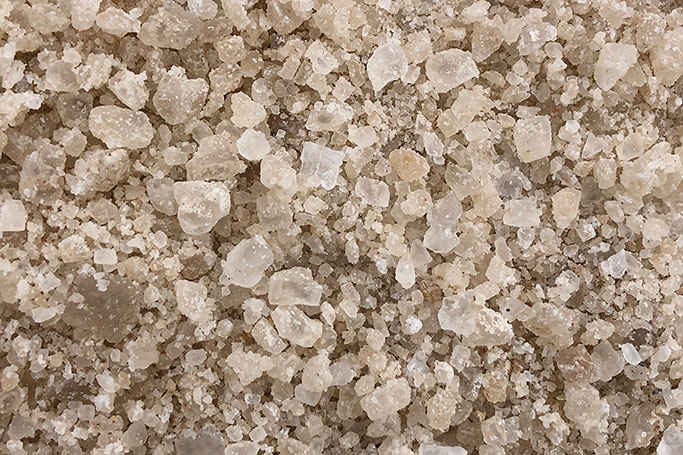
Famartin, via Wikimedia Commons
Can other types of deicing products be used?
It is not recommend to use any other types of deicing chemicals. This includes:
- Magnesium chloride (MgCl2)
- Calcium magnesium acetate (CMA)
- Potassium chloride (KCl)
- Potassium acetate (KA)
- Fertilizers containing ammonium nitrate and ammonium sulfate.
The deicing product is not sodium chloride or calcium chloride, but the product label says it's safe for concrete. Can this product be used on concrete pavers?
It is not recommend using any products other than sodium chloride and calcium chloride. Research has found that some products are incorrectly listed as “safe” for concrete and do cause damage to concrete and concrete pavers.
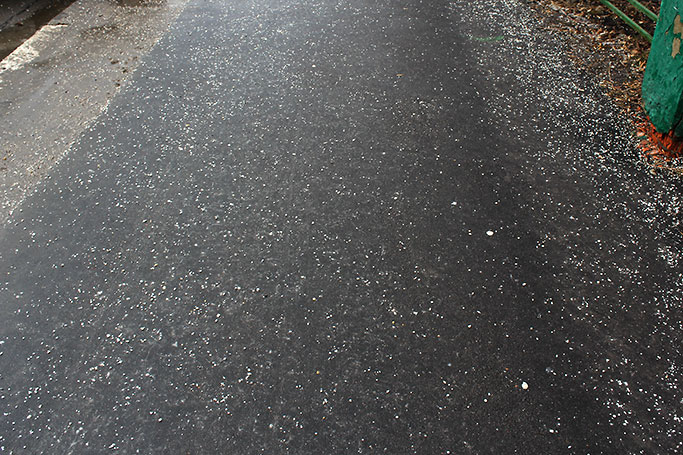
Stolbovsky, via Wikimedia Commons
Will sodium chloride and calcium chloride damage plant material?
Unfortunately, they can. Always use sparingly and try to prevent runoff of meltwater into landscape beds.
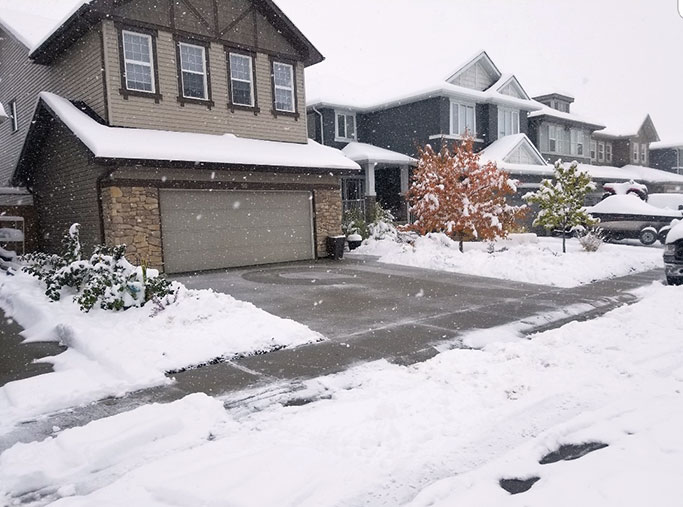
AGreenFutureCalgaryLandscaping, via Wikimedia Commons
Other types of deicing chemicals have been used on ready mix concrete sidewalks without damaging the surface. Is this because concrete pavers are not as strong?
All concrete materials are susceptible to damage from deicing chemicals no matter how the concrete product is produced. It takes time for this type of damage to show. Concrete pavers are typically two to three times stronger in terms of pounds per square inch strength and have lower absorption rates than pour-in-place ready mix type concrete so are actually more resistant to damage. Proper application and cleanup of deicing products will go a long way in assuring the longevity of your concrete installations.
Call us at the Hardscape Center if you have any questions or concerns on what you should or shouldn’t use to help keep those patios, walkways and driveways looking great.
.
